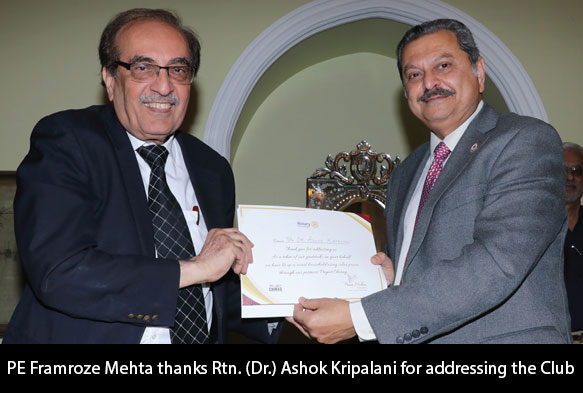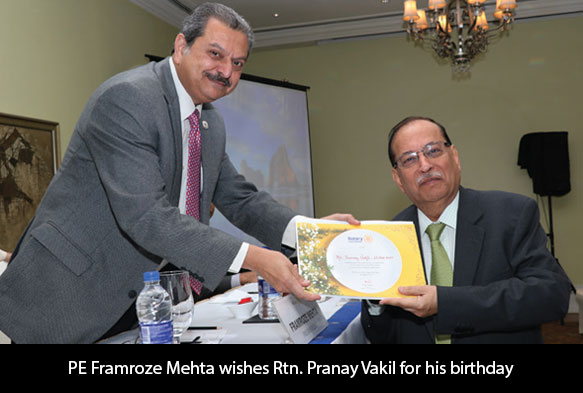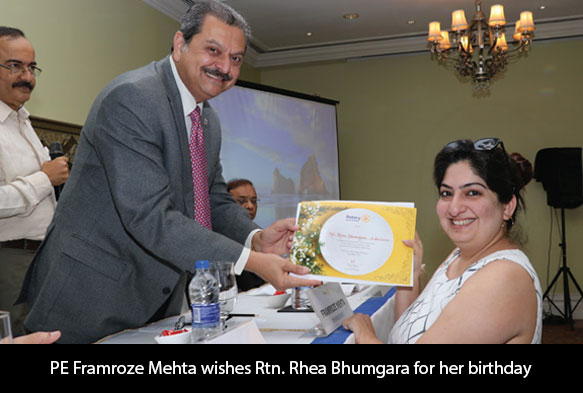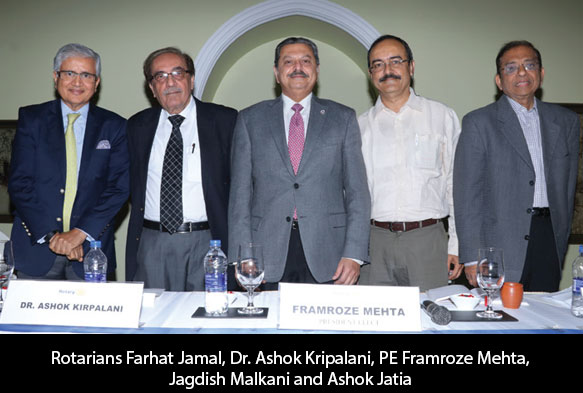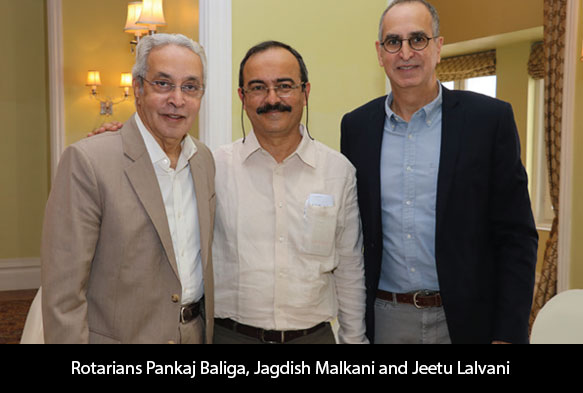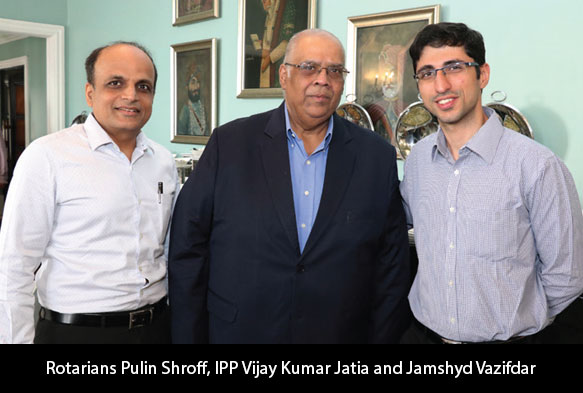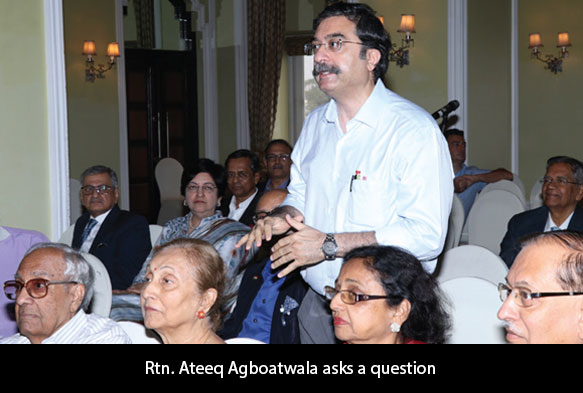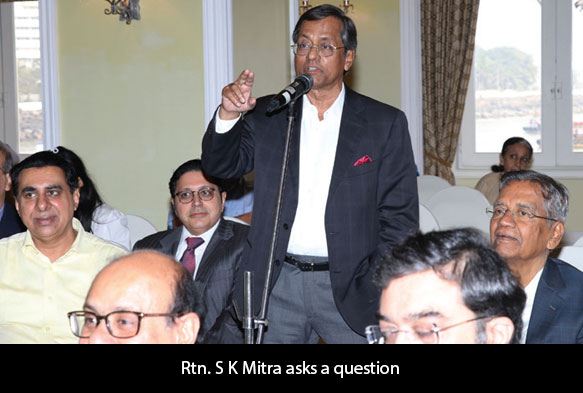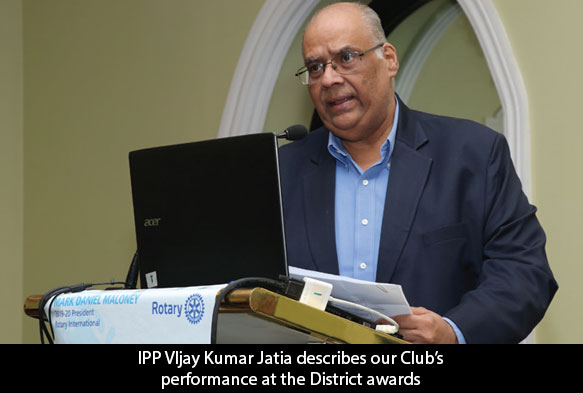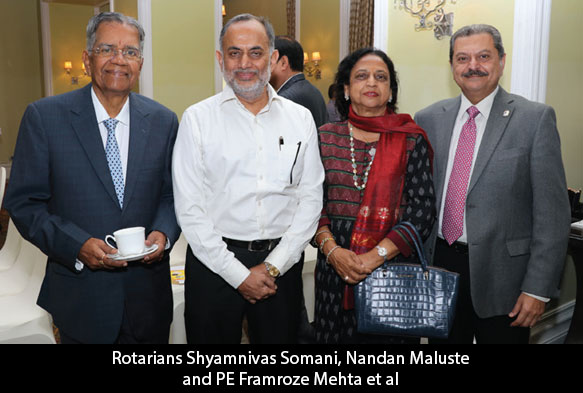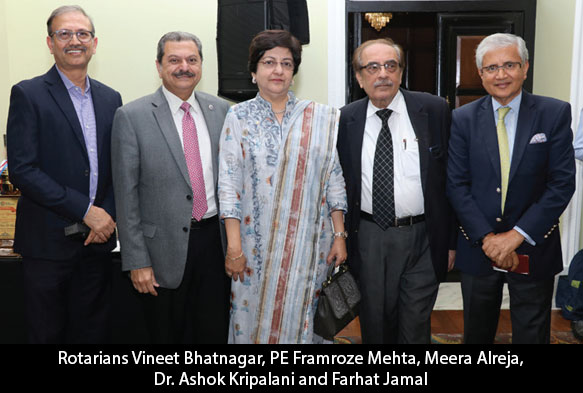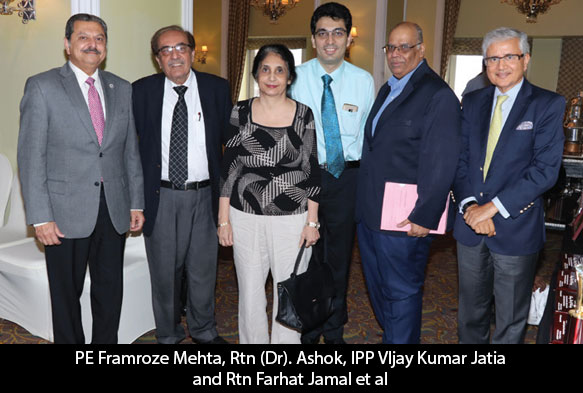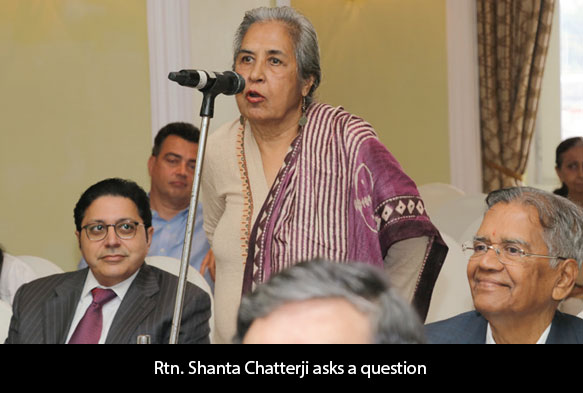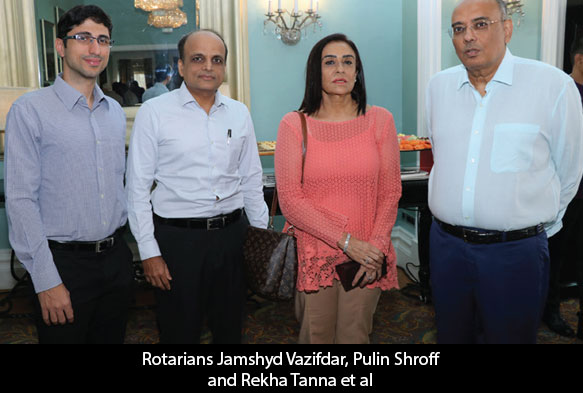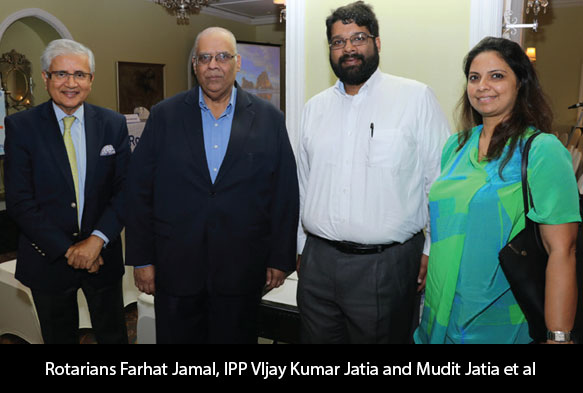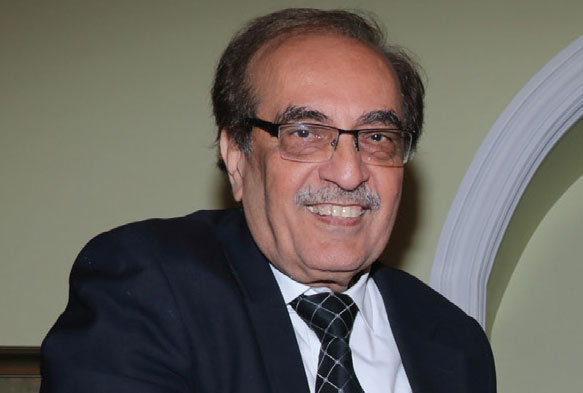
Doctor, Not God
Rtn. (Dr.) Kirpalani delineated all the stakeholders in medical care and outlined the challenges
There has been a change in the way patients see doctors over the last 15 years, said Rtn. (Dr.) Kirpalani. “My father’s patients worshipped him as a God and meant it. Today, after having done 3,000 transplants, I too have patients who say aap mere maai baap hai! But when I look upon them now, there is a great deal of trepidation and fear because the same people turn around and blame me so often, irrationally and sometimes rationally. This change – is it good for society and is it good for the patients?”
“Every doctor, be it the great Bhattacharya or the small registrar in my office who writes history for me, has one thing to say: ‘I am a doctor and I am afraid’. I am afraid of my patients. I get up every morning and I pray I am not a doctor in my next life. People are attacking clinics, beating doctors and those in training – who are MD and are paid probably 35,000 a month – these are the people who are being thrashed the most.”
“In the past, there was nothing between patient and doctor but a clinic, a bottle of red mixture and some tablets. The doctor gave it and you swallowed it. There was an immense faith and patients got well. That was the only real interaction. Today, there are stakeholders – some genuine, some pseudo and some neither genuine nor pseudo. All their misgivings and misadventures are ultimately borne by the doctor facing the patient. Failure to cure and failure to save the life, failure to deliver after a good operation, is all faced by the doctor and that is the issue. Most doctors now see that their patients have no faith. I see patients on a fourth reference – first he’s been to a GP, then to a consultant, then a super consultant and then me.”
“The second stakeholder is the family of the patient who, of course, is concerned. But the granddaughter looks at her
grandfather and says, ‘He is in the ICU, the bill will be Rs 18 lakh; I can’t go to America for my training because of this old man.’ So, there are mixed feelings. And the biggest stakeholders are the doctors, the hospitals and the diagnostics. Plus, people are doing unnecessary investigations.”
“Then there are pharmaceutical companies. You think they are not genuine stakeholders but they are. Because of them, there are new drugs which are saving lives by the gallons, but you look at them and think, ‘They’re thieves. Let’s buy the Indian drugs.’ You try some of the drugs, particularly the antibiotics and the new anticancer drugs, and the effect you get from one originator is much superior to what you get in local. So, be careful, do not think that they are not genuine stakeholders.”
“There are great educationists who are putting up hospitals and medical colleges. I need not say more. The medical college brings to your mind the image of a person in a dhoti and a topi and the next thing you know is Rs 2 crore per seat. That is not the doctors’ fault but that is how people become doctors. Eighty per cent of the seats in Maharashtra are only for Marathas. So, where do I send my son? Thank god, to the private medical colleges. You can’t just say that private medical colleges are thieves – that is not true. I had to send my son to private medical college. That is education for you. Then there are NGOs. Some are doing great work but a lot of NGOs and charities are bogus. People do pseudo charity – it is easy to sit at home and do charity. The real charity is the one in which the people go and wash the feet of lepers. The other type is CSR charity. So there are types of charitable organisations. Then, there are the great well-wishers who will ask, ‘Do you have a cold? Warm some nimboo paani and
drink it. This is the problem.”
Then there are the regulatory authorities like the IMA, the medical council, all giving you a heartburn, producing new acts. Now, if a person tries to find out whether he has a daughter or a son and comes to the radiologist for sonography, the sonographer is arrested and the lady is allowed to go home. What nonsense is this! And, you have to give undertakings. I, as a nephrologist, cannot buy a sonography machine. It has to be kept in a place where it is visible to everybody, it cannot be taken out of the hospital. I have a serious patient at home? No, it cannot be taken home because you may go and diagnose someone’s pregnancy. The whole methodology is completely draconian and it is for the softest target. Another example is of kidney transplant. People are buying and selling kidneys but who is going to jail? The doctors. We go to jail because we are saving lives; you forget the end. If the end justifies the means, then everyone will put their hand in the pocket and buy the kidney if needed.”
“The IMA forced the last Health Minister to promulgate a new law against anyone who hurts a doctor. Do you know that it is blocked? It has been thrown out because the Home Ministry says that you cannot have a law for one particular profession. The Health Minister was himself a doctor, Dr Harsh Vardhan, he was the one who pushed it, but the Home Minister says no. This is the problem with medical systems.”
“Our Prime Minister is a good man and has his heart at the right place. He takes out money, which has not been taken out before, for health. But, what does he do? He short-cuts it. He starts saying that ayurvedic doctors can become allopathic doctors, short-cut medicine. How can a person who believes that potency increases by diluting, understand my medicine? Instead, you should have bare foot doctors, have nurse practitioners. But he does not listen to us – he listens to Rajnath. That’s the problem. Already, for one allopathic doctor there are two alternate doctors registered. Then, what does he do? He gives money to insurance instead of upgrading public hospitals like the JJ hospital, KEM, which are doing excellent work but are overloaded and they pay the doctors so little that every year there is attrition from the profession. You go to KEM, you become a professor, 1.5 lakhs-2 lakhs. You go out and practice, you earn 10 times more. But if you pay them enough they will stay there.”
“Then, there are governments which openly abuse doctors. Mamta Banerjee once said that if a doctor does not attend to you for Rs 400, you bring him to me, I’ll have him beaten up by my goons. Ultimately when that happened, the doctors in Calcutta went on strike and she had to take back her words.”
“Many years ago, I was involved in the care of 14 people who had cataract, brain surgery and strokes and were given glycerine in JJ hospital which was industrial glycerine instead of pharmaceutical grade. It had a contaminant which was a poison, caused kidney failure and whole body failure. Fourteen people died in my hands, it was severe poison. It happened in 1985.”
“Lots of commissions for enquiry were set up. The famous one was Lentin Commission. Justice Lentin spent three years recommending how to put everything in order. He examined me and did not accuse me of anything. The people who were accused were suspended, subsequently the suspension was overturned, two doctors died during that suspension period. What happened to the pharmaceutical company that bought and sold that material? That company changed its name and continued to work.”
“Two years ago, I got a notice from the magistrate court to come and give evidence in the Lentin Commission case. That is 33 years later. I was called because the charges had not even been framed! Is anyone concerned whether or not the company or the people were punished? No, because the media does not bother, I didn’t too. Nobody is saying that the pharmaceutical company is still producing the medicines.”
“So, will doctors start adopting the principle of ‘live and let live’. This might happen. Practicing medicine is a fine art and you have to change it from time to time. Doctors guarantee nothing except their best effort. Every medical treatment has side effects, and everyone must accept that he is going to the doctor and not to God.”
“You, as intelligentsia, can propagate this theme. Start with your own family, and say, ‘Look, one day I am going to die please do not put those 16 tubes in my abdomen, I don’t want that. Don’t make a mess of me.’ Let us have hospice care. We need hospice which means where hospitals are not going to work but a place where a person is allowed to go comfortably.”

